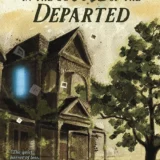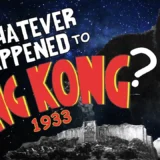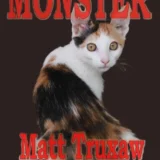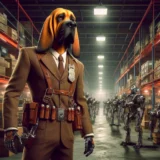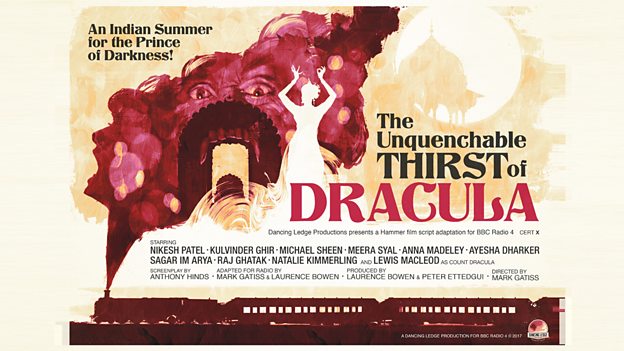
BBC radio has become interested in horror lately.
Last year, we had several scary tales ahead of Halloween, including a reading of Rosemary’s Baby. This autumn, there have been two highlights – an unmade Hammer Films script called The Unquenchable Thirst of Dracula and a serialisation of The Omen. Both of these productions showed just how potent a medium radio is for delivering scares.
The Unquenchable Thirst of Dracula was offered as a fully-realised drama last Saturday afternoon (and like The Omen, it’s still available online, wherever you are in the world). Written by Hammer producer Anthony Hinds, it would have taken the series in a surprising direction after 1970’s Scars of Dracula.
The idea for the film was born out of the fact that Warner Brothers, Hammer’s frequent distributor and production partner, had its assets frozen in India. Hammer suggested unfreezing those assets by making a Dracula movie there. Hinds duly concocted a story set in 1930s India, with Dracula sharing screen time with a blood cult of the kind we later encountered in Indiana Jones and the Temple of Doom.
Mark Gatiss, who used to channel his love of horror films into the grotesque comedy of The League of Gentlemen, directed this adaptation for radio. It’s part of Radio 4’s occasional strand titled Unmade Movies, and the drama apparently sticks closely to the screenplay, with narrator Michael Sheen reading out chunks of description from the script.
It’s clear early on that the story has the same problem that afflicted several other Hammer Draculas – namely, that Dracula himself doesn’t have enough to do. As in some other Hinds scripts, the Count remains in his lair, requiring unsuspecting young people to come to him or be forced into his presence. What’s more, Dracula (Lewis MacLeod) has to share this realm with the blood cult headed by a corrupt Maharaja and his wife the Rani. By forcing the Count to cohabit with other evil-doers, the script runs the risk of making him much less terrifying – but it does at least add an element we haven’t seen before, and for that reason, the drama remains interesting.
The big surprise is that Hinds wrote a good role for a woman. Penny (Anna Madeley) is an independent young woman, travelling alone in India. (Gatiss has called it “Heat and Dust and Fangs”.) At one point the character is undressed and offered to Dracula in predictable fashion, but for the rest of the story, she takes charge of the action, all the way to a final twist.
We don’t know how a Hammer director such as Terence Fisher, Freddie Francis or Roy Ward Baker would have treated the material, but the radio adaptation conjures up a very impressive movie in the listener’s imagination. Tensely-narrated action sequences alternate with evocative horror scenes, particularly those involving rituals and sacrifice, and Blair Mowat has provided a score very much in the style of James Bernard’s Hammer music.
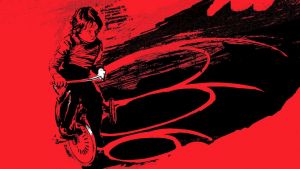
The reading of The Omen attracted complaints from some who thought the material was unsuitable for Radio 4’s late-night literary strand, which still goes by the wonderfully cosy title A Book at Bedtime. Listeners might have been equally entitled to ask whether the book really qualified as literature at all, since David Seltzer’s book was not an original work but an adaptation of his screenplay to the 1976 film.
If you spend any time thinking about it, The Omen – in which the US ambassador to London and his wife are tricked into raising the Antichrist – is pretty ludicrous. But the film was also ludicrously effective, thanks to its deadly serious tone, the effective staging of its several death scenes and Jerry Goldsmith’s terrifying music. The five tightly-edited radio episodes maintained a similar intensity, using passages of Goldsmith’s work, along with other music, to punctuate Owen Teale’s appropriately portentous reading. You might harbour any number of quibbles about the story’s selective plundering of the Book of Revelations, or about the holes in its logic. (Is the four-year-old Damien deliberately causing the deaths that happen around him, or is he a powerless pawn in a predestined plan?) But those quibbles are likely to be forgotten amid the serial’s unsettling sense of doom.
Both these BBC productions remind us just how well radio can tell horror stories. There is an intimacy between listener and performer that means shocks, suspense and an atmosphere of dread can be experienced more powerfully than they often are on screen. Seventy-nine years after Orson Welles terrified America with The War of the Worlds, the medium retains its power to chill.





